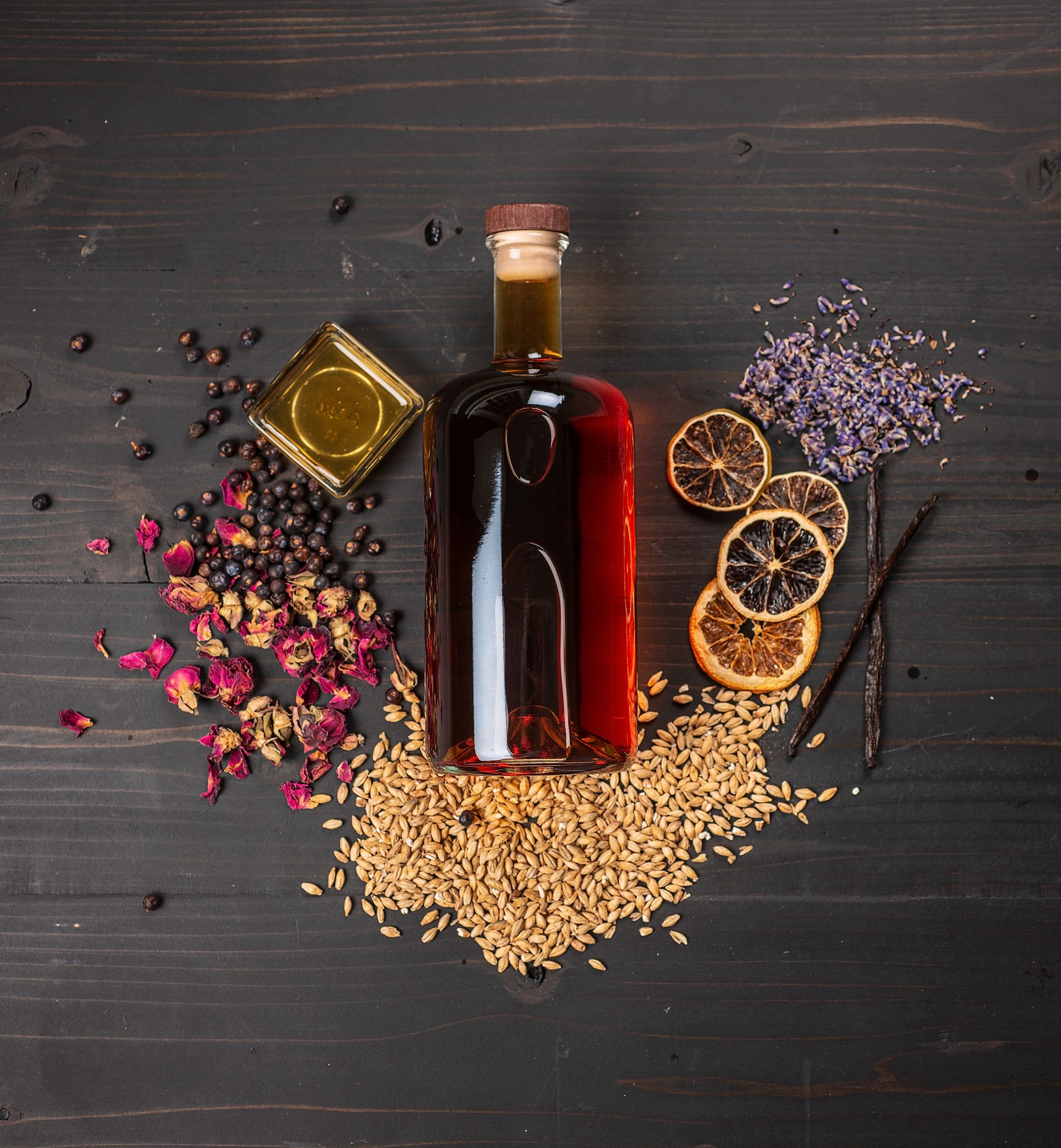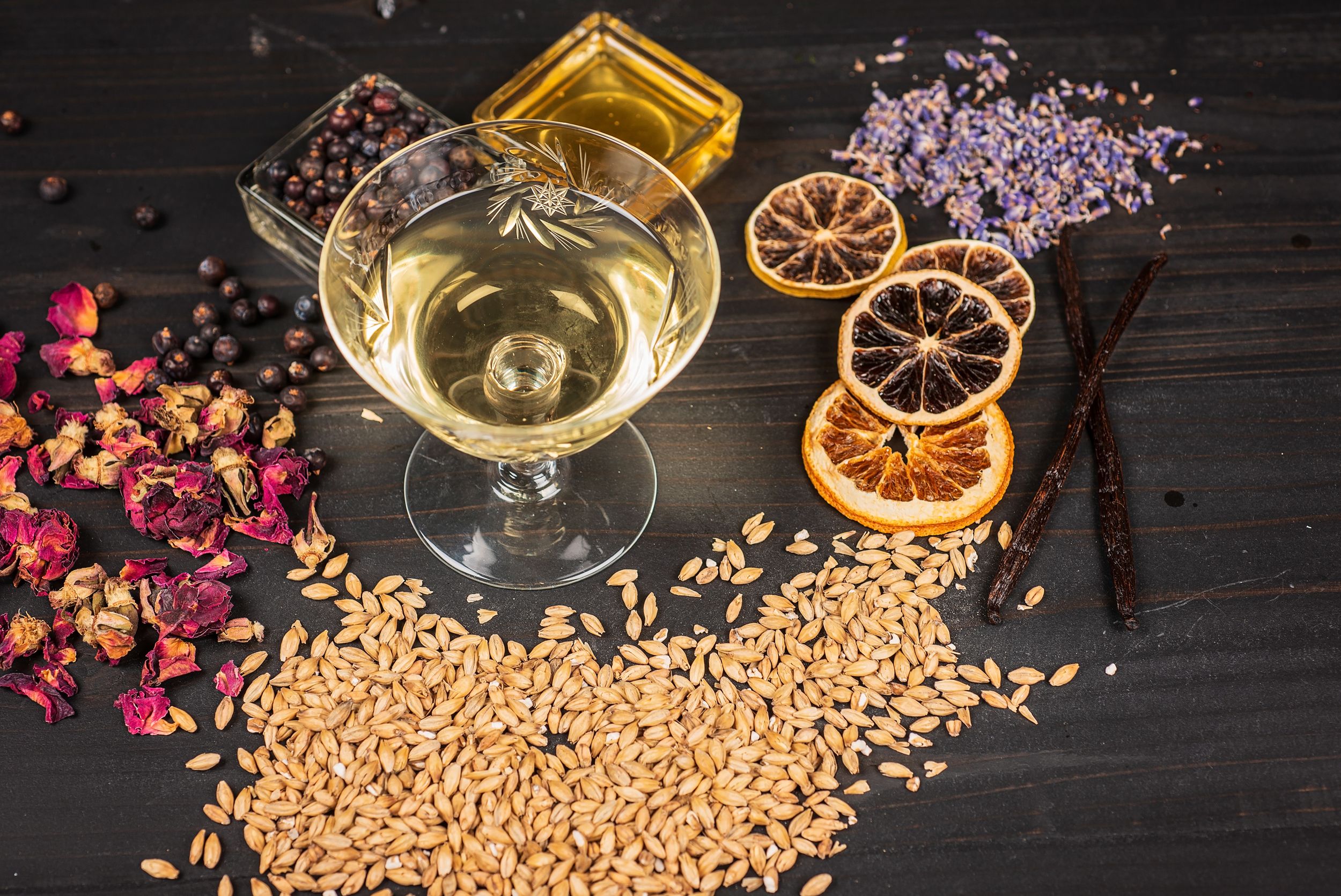Spirits of the Season
There’s nothing like a wee dram of something strong to take the chill off a wintery day or to toast a festive celebration. Luckily, Vancouver Island has more than enough artisanal spirits to see us through any storms the holiday season can throw at us.
A full 20 of B.C.’s 71 artisan distilleries are located on Vancouver and the Gulf Islands, including some of its very first and its very finest. What sets them apart is the wealth of ingredients that goes into their spirits—grapes and grain, of course, but also roses, honey and even seaweed—for a true expression of Island terroir. And that’s the whole idea.
“What I hope we do as a province is to do what works best for where you are,” says Rick Pipes, owner of Merridale Cidery & Distillery in Cowichan Valley and one of the original founders of the Craft Distillers Guild of B.C. “We need to find what we do right.”
B.C.’s craft distilling industry is still young. Our first artisanal distilleries opened in 2004, but it was only in 2013 that the province established a “craft” distilling licence. To be considered craft (and avoid a hefty 160% markup), a distillery must use 100% B.C. agricultural products in its mash. Luckily, on Vancouver Island, that’s easy to do.
Grain
Most spirits the world over are made from grain, especially wheat, barley or corn, which are both plentiful and easy to work with. Although some wheat and barley is grown on the Island, it is expensive and limited in quantity, so craft distilleries typically use grain from Northern B.C.
One exception is Shelter Point Distillery, which is located on a 380-acre farm in Oyster River near Campbell River, where they grow the barley that goes into their vodka, whisky and gin. Established in 2011, it is one of a tiny handful of distilleries worldwide to grow and mash their own grain. The Single Malt Artisanal Whisky is their calling card—it is distilled in traditional copper pot stills and aged in American oak barrels for a smooth, well-balanced and complex spirit.
Fruit
B.C.’s first craft distilleries were created to make the most of excess fruit—and grapes, berries and tree fruits are still used to make some of the province’s best spirits.
At Merridale Cidery & Distillery, that, not surprisingly, means apples. Their gin, vodka and award-winning Cowichan Cider Brandy actually start as apple cider made from their own estate-grown fruit. It is then distilled into a clean, clear spirit with a delicately perfumed and subtle fruit flavour. The gin is then flavoured with 47 botanicals, many of them local, while the brandy is aged in French oak barrels.
Honey
Perhaps most surprising is the number of Island distilleries that make spirits from honey—including Merridale, DEVINE, Salt Spring Shine and Wayward Distillery.
Distillate made from honey takes on its flavour characteristics but loses the sweetness, resulting in a smooth, aromatic and delicately spiced spirit. Honey also allows B.C. craft distillers to make a rum-like spirit, typically called “rhumb.” (Rum by law must be made from sugar cane or its by-products, and sugar cane doesn’t grow in B.C.—at least, not yet.)
Wayward was Canada’s first distillery to use honey for the ferment in its spirits, and it forms the base for everything from Unruly Gin and Vodka to the spiced honey liqueur called Krupnik. They also have four demonstration hives on site and donate one percent of all spirit sales to protect bees and pollinators.
Botanicals
Alcohol is formed when yeast transforms sugar into alcohol, which is why grains, fruit and honey are used to create base spirits. But once you have a spirit, you can flavour it with just about anything. And Vancouver Island, with its bounty of local ingredients, has a cornucopia of flavours to offer.
At Pacific Rim Distilling in Ucluelet, distiller Luke Erridge uses Barkley Sound botanicals including salal, shore pine and Nootka rose in his Lighthouse Gin. Even the yeast is indigenous to the sound.
In the Cowichan Valley, Ampersand Distilling Company uses green walnuts from a neighbour’s tree to make its limited, seasonal Nocino!, the 2021 Canadian Artisan Spirit Competition Spirit of the Year.
Over in Sooke, Sheringham Distillery has earned barrels of awards for its Seaside Gin, which is flavoured with, among other things, sustainably harvested local winged kelp that adds a subtle but distinctive briny flavour. Its Kazuki Gin, on the other hand, is flavoured with green tea from Westholme Tea Farm in Cowichan Valley.
And perhaps no distillery makes better use of Island bounty than DEVINE Distillery and Winery on the Saanich Peninsula. Grapes, herbs and flowers grown on the property go into the Vin Gin and Italian-style Moderna Vermouth; a neighbour’s honey is transformed into Honey Shine; and locally grown and malted barley becomes Glen Saanich single malt.
Now that’s the taste of Vancouver Island in a glass.

|
Spirited Sources If you want to visit the Island’s distilleries, follow the self-guided Vancouver Island Spirit Path: vancouverisland.travel/itineraries/craft-spirits/ Pick up Marianne Scott’s book, The Distilleries of Vancouver Island (TouchWood Editions), for a personalized guide with recipes. Victoria’s Shawn Soole, bar manager of Clive’s Classic Lounge, bar consultant and host of the “Post Shift” podcast, covers the entire province—and offers loads of cocktail recipes—in the BC Spirits Cocktail Book: Discover British Columbia’s Distilling Culture (Freisen Press). For an up-to-date list of B.C. distilleries, as well as the latest information about BC Distilled, the annual artisan distillers’ festival in Vancouver, visit bcdistilled.ca. |





